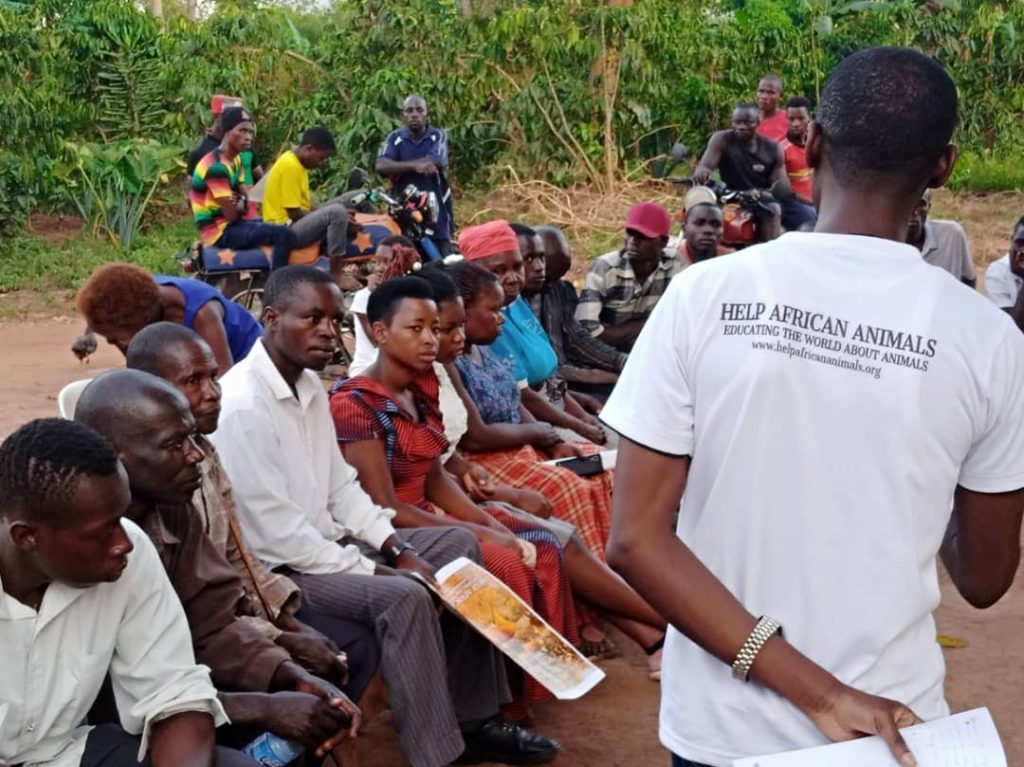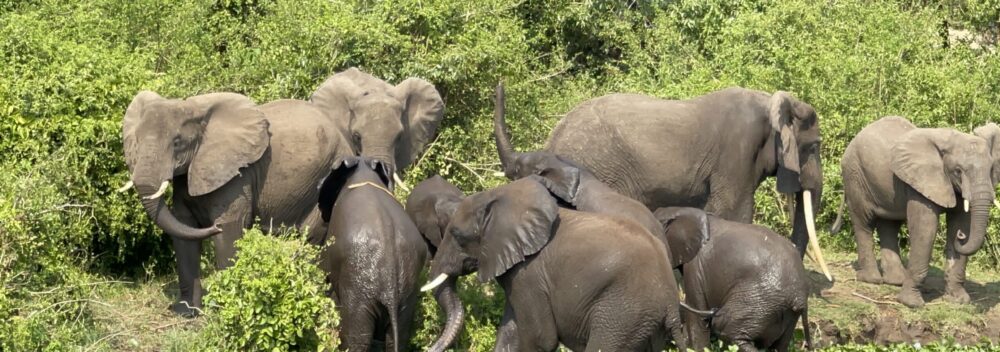
A volunteer of Help African Animals educating rural people in a community wildlife talk held at Kapeeka sub-county, Nakaseke district of Uganda
In Uganda, rural people and animals live in the same ecosystem. The struggle for space and food between animals and humans is still a huge problem in Uganda. With all the dangers associated with living with wildlife, people regard wildlife as enemies which they must eliminate. Rural people are ignorant of the importance of conservation and the laws protecting wildlife. Out of ignorance, they kill animals which has sent many species of wildlife into extinction.
Rural people are also increasingly used by traffickers in the illegal wildlife trade. They are paid to kill the animals or used in the transportation of the protected species within the country and across borders. Rural people benefit less from illegal wildlife trade because they do not know the value of wildlife. Sadly, they are the ones who many times end up being arrested with the species and charged. They are shocked to learn that the species they killed/possessed are highly endangered/protected and that the offenses attract penalties of up to life imprisonment.
Having different individuals in the community to attend the education campaign was a great idea. Community members had a chance to learned that wildlife on their land or in their community is not theirs to kill/eat/destroy. They learned the importance of protecting wildlife, how to protect wildlife in their community, to identify wildlife crime and report it, the laws protecting wildlife, and penalties for violation of the laws.
Help African Animals is driven by the belief that unless people understand the dangers of killing/destroying wildlife, they will not care to conserve it and unless they care, they won’t help to support or participate in conservation efforts/programs. Animals don’t speak. Let us speak for them.




